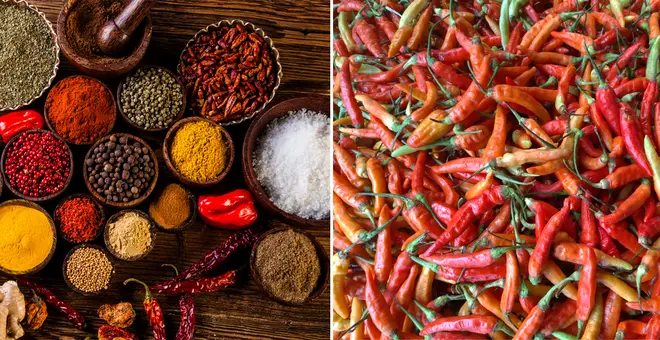Eating spicy food more than four times a week 'reduces risk of early death by a quarter'
17 December 2019, 12:54

A new study has claimed that regularly eating spicy chilli peppers can cut your risk of strokes and heart disease.
Eating spicy food regularly could reduce a person's risk of early death, it's been claimed.
A study has claimed that consuming the spice more than four times a week can cut risk of fatal heart attack or stroke by as much as 23 per cent.
Read more: UK weather: Brits facing 'worst day of 2019' with 'snow bomb' this week
The study, which was published in the Journal of the American College of Cardiology, looked at 22,811 citizens of the Molise region in Italy.

It followed them for a period of eight years, and found that those who ate the spicy foods were 40 per cent less likely to die of a heart attack.
Marialaura Bonaccio, epidemiologist at Neuromed in Pozzilli, Italy, said: "An interesting fact is that protection from mortality risk was independent of the type of diet people followed.
"In other words, someone can follow the healthy Mediterranean diet, someone else can eat less healthily, but for all of them chilli pepper has a protective effect."
Read more: WhatsApp reveals three new features for Android and iPhone users, including group invite blocking
And Licia Lacoviello, director of the department of epidemiology and prevention at the IRCCS, added: "Chilli pepper is a fundamental component of our food culture. We see it hanging on Italian balconies, and even depicted in jewels.
"Over the centuries, beneficial properties of all kinds have been associated with its consumption, mostly on the basis of anecdotes or traditions, if not magic.

"It is important now that research deals with it in a serious way, providing rigour and scientific evidence.
"And now, as already observed in China and in the United States, we know that the various plants of the capsicum species, although consumed in different ways throughout the world, can exert a protective action towards our health."
NOW READ:
Mum charges £13 an hour decorating busy families' Christmas trees






















